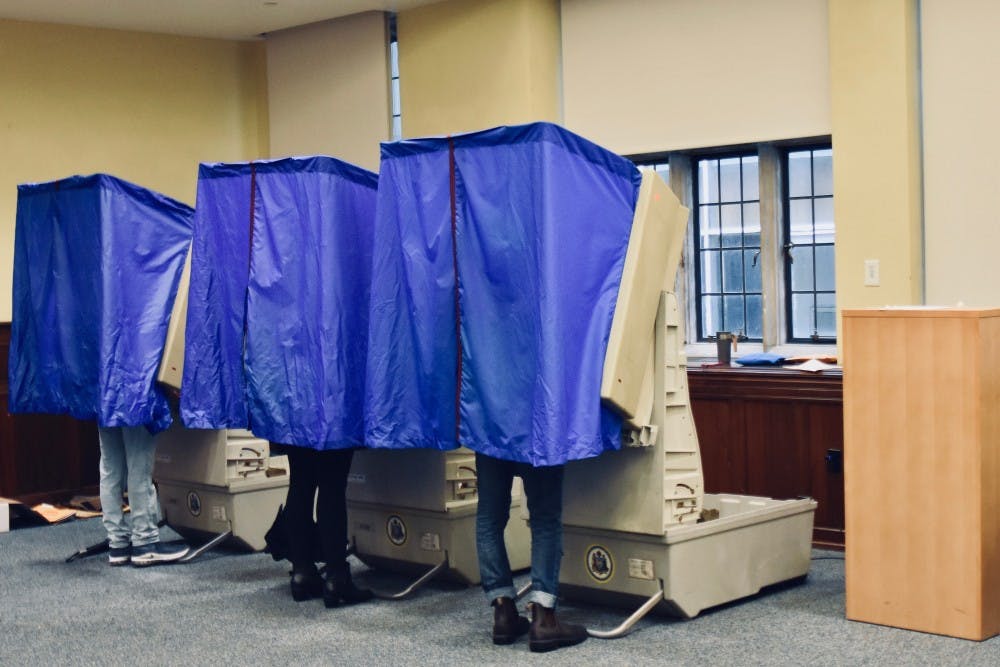A Penn program gives students the chance to work directly with election polling data ahead of the 2020 presidential election.
The Program on Opinion Research and Election Studies, run through Penn's Political Science department, chooses student fellows each semester to work with faculty on projects related to political outcomes research. Known as PORES, the program was founded by Political Science professor John Lapinski, who is also director of the Elections Unit at NBC News.

Capitalizing on Lapinski's connection, some PORES fellows in past years have had the opportunity to visit NBC News on election night, making predictions and crunching data at the decision desk. Current fellows hope to have opportunities to do so as well in the 2020 primaries and elections.
College sophomore Grayson Peters said he began working as a PORES fellow last spring, working with Lapinski to analyze presidential primary data from the past five election cycles. He hopes to continue his work as the presidential primary elections begin this spring.
“I think that the opportunity to work with researchers who are not only at the top of their field privately at a research institution, but are also employed by a major news corporation is an opportunity that’s unparalleled at any other university in the country," Peters said.
“There’s no school in the country right now that is in a similar position where they can bring their students with them to really contribute and they have the skills to do it," Lapinski said.
Having highly involved professors can also lead to challenges, including changes to course scheduling due to political events. While Lapinski's "Applied Data Science" course is usually offered in the spring semester, this year it is offered in the fall because Lapinski and his colleagues will be working closely with NBC News next spring to cover the presidential primaries. PORES Director of Operations Andrew Arenge said the only change this brings is that it requires students to look ahead and plan their courses accordingly.

Lapinski said he founded PORES to create an interdisciplinary option for students enrolled in the College of Arts and Sciences to immerse themselves in data without being engineers.
“There’s a talented group of Penn undergraduates that made decisions when they were 16 years old that decided not to go into a school of engineering but still have lots of interests in the data sciences," Lapinski said. "We thought we needed some other way to bring students back into that world that was not through the School of Engineering.”
In addition to the fellowship, PORES offers a minor in Survey Research and Data Analytics. The minor was introduced in 2016 and includes courses in American politics, survey research, and statistical computing in R. According to the PORES website, it is "one of the fastest-growing minors on campus."
While the PORES program focuses primarily on social sciences, it teaches skills that can be generalized to other areas. Political Science professor Matthew Levendunsky said the minor gives students skills in statistical programming, surveying, and drawing conclusions from data that can then be applied to other fields like business and marketing.
“Because of our academic interests we tend to focus more on political work related to polling, elections, [or] campaign analytics," Levendunsky said. "But it’s the same skills that might take you to different types of data.”









